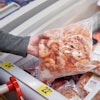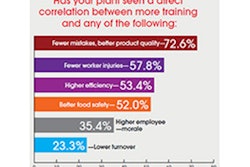ATLANTA (AP) — Agricultural experts from Georgia have inked a deal with the West African country of Gabon to help develop its tiny farming sector — a partnership that could lead to lucrative deals for state producers.
State officials say industry, government and academic leaders who visited Gabon were asked for help in training future farmers and in developing a food safety inspection program.
Georgia officials say the three-year deal reached last November not only furthers Gabon's goal of providing more of its own food but also presents export opportunities for Georgia's food producers.
Oil-endowed Gabon has to import food for its 1.6 million people — but President Ali Bongo Ondimba says he wants to dramatically increase the country's agricultural production.
Gabon sells billions of dollars of crude drilled from its onshore and offshore oil fields every year, but its agriculture sector accounts for just 5 percent of the economy.
Such an imbalance can cause problems for developing nations. A jump in inflation or other disruptions can make it costly for Gabon's people to buy food staples from abroad. It is one reason Bongo's government has announced a goal of increasing agriculture production to 20 percent of the country's overall output.
"Gabon wants to diversity its economy. We are trying to make sure the country does not rely solely on oil revenues," said Michael Moussa-Adamo, Gabon's ambassador to the United States. "Unfortunately, with the oil curse — we say the oil curse — people are moved away from agriculture."
Under an agreement with Gabon, experts from the University of Georgia will create an agricultural curriculum that starts with students in farming-focused high schools and extends through technical college, Georgia Agriculture Commissioner Gary Black said. Georgia had the 16th-highest revenue for crops in 2011, according to federal statistics, and is the biggest U.S. producer of broiler chickens, an industry that Gabon wants to develop.
Gabonese officials also want to create an agricultural research center that focuses on practical issues, much as UGA's extension service develops new crops suited to Georgia and devises methods to prevent crop and livestock disease.
Officials are finalizing contracts to establish payments and terms, Moussa-Adamo said. The effort is being entirely funded by the Gabonese government.
For Georgia, the potential payoff would largely be in trade opportunities. Gabonese residents had the third-highest income in Africa last year, according to World Bank estimates, meaning they can afford foreign products.
During a trip to Gabon, Black and leaders from Georgia's poultry industry walked through a supermarket in a middle-class neighborhood in the Gabonese capital of Libreville. Black said the business delegation noticed that a frozen chicken from France cost the equivalent of $15.
"They were quite frankly licking their chops saying, 'We can get a bird in here for less than $15,'" said Black, who is also researching whether Georgia firms can sell chicken farming equipment to Gabon to stimulate its own poultry industry. Black said he also hopes to send inspectors from his department to advise Gabon on ways to run food safety programs.
J. Scott Angle, dean of UGA's College of Agricultural and Environmental Sciences, said the low production in Gabon's agricultural economy was partly a consequence of its oil wealth. Meat and rice were among the top 10 imports into Gabon from 2007 through 2009, according to United Nations statistics.
While Angle said there is room for Gabon to expand production, the limitations of its hot, wet climate will require it import at least some food in the long run. And a revived agricultural sector could expand the demand for Gabonese businesses to import agricultural infrastructure.
"We're hoping that those products are purchased from Georgia," he said.





















